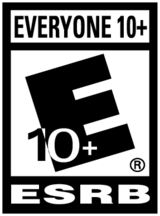Howl Review
As bad as the middle ages probably were to live through, they’re infinitely worse in video games. In addition to various wars, plagues, and the Inquisition, games like Howl toss in extra special challenges. In this case, a supernatural disease called the “howling plague” turns everyday folk into werewolves or feral beasts. Your task is to rescue your missing brother and find a cure for the plague. Easy peasy.
Not What It Seems
At first glance, Howl looks like a pretty standard, turn-based tactical RPG, albeit one with a very distinctive aesthetic. But looks can be deceiving. In reality, Howl leans heavily into its puzzle elements, presenting several bite-size, replayable levels. The puzzles naturally grow in complexity and completing them becomes increasingly satisfying.
You play as the Prophet, a young girl who is deaf and thus immune to the sound-based howling plague. As you travel the medieval countryside on the overworld map, you make frequent jumps into the woods to fight. There, you encounter groups of beasts to kill or avoid, villagers to rescue, and other objectives. You have a limited number of turns. Complete your objectives with turns to spare and you earn Confidence. Kill the beasts and you earn Skulls. These are important. Confidence can be used to earn additional actions, and upgrade combat skills, and Skulls open up shortcuts and new areas.

As in most tactical RPGs, combat is turn-based and played out via back-and-forth rounds. Players start with three actions per round, and can upgrade to a maximum of six actions per round. Enemies will have one turn per action taken in each round. Your task is to spend your actions while anticipating what the enemies will do. This means knowing their patterns and logic.
Head Scratcher
The puzzles come via the small area for each encounter, obstacles to work around, limited weapons, and the Prophet’s frail health. A bow and force push ability are the Prophet’s main tools until late in the game. Eventually, she gets some fancy moves like a somersault, explosive arrows, and bombs. True to the puzzle nature of Howl, these become key to completing a level.

While the puzzles become devilishly hard, the levels themselves are compact and they can be revisited for grinding Confidence and Skulls. There is also a guided Assist Mode which reminds the players how the enemies will move. It’s a useful tool that still insists that the player solve the puzzle.
Speaking of enemies, they’re relatively limited in type. Most are varieties of werewolves. some more powerful than others, some faster, or some with more actions per round. It makes sense. After all, the game is called Howl and is about a werewolf plague, but a few different enemy species would be welcome.
Short Story
Split into four chapters, Howl is not a long game — well, depending on your puzzle-solving skills — and its story is relatively straightforward. There isn’t any voice acting aside from an unseen narrator. The game’s music is gently acoustic and never really hints specifically at the medieval period. Sound effects in combat or exploration are pretty understated.
Even from looking at screenshots, it’s clear that Howl’s visual design is distinctive. It’s the second or third game I’ve played this year with art based on medieval ink drawings. In Howl’s case, the little paintings are deceptively primitive. My only complaint is that, like the limited number of enemies, the art and environments don’t have a huge amount of variety.

Like every compelling puzzle/strategy game, Howl’s basic mechanics are easy to grasp, but using them effectively is the challenge. Its seemingly bite-sized puzzles are deceptive and require real thought and planning. I wish there was a little more variety in a few key areas, but Howl is a unique game that will appeal to tactical RPG fans, puzzle lovers, and medieval werewolf aficionados alike.
***PC code provided by the publisher for review***
The Good
- Engaging puzzles and tactics
- Cool art design
- Lots of replayability
The Bad
- Lacks enemy variety
- Story is pretty basic

